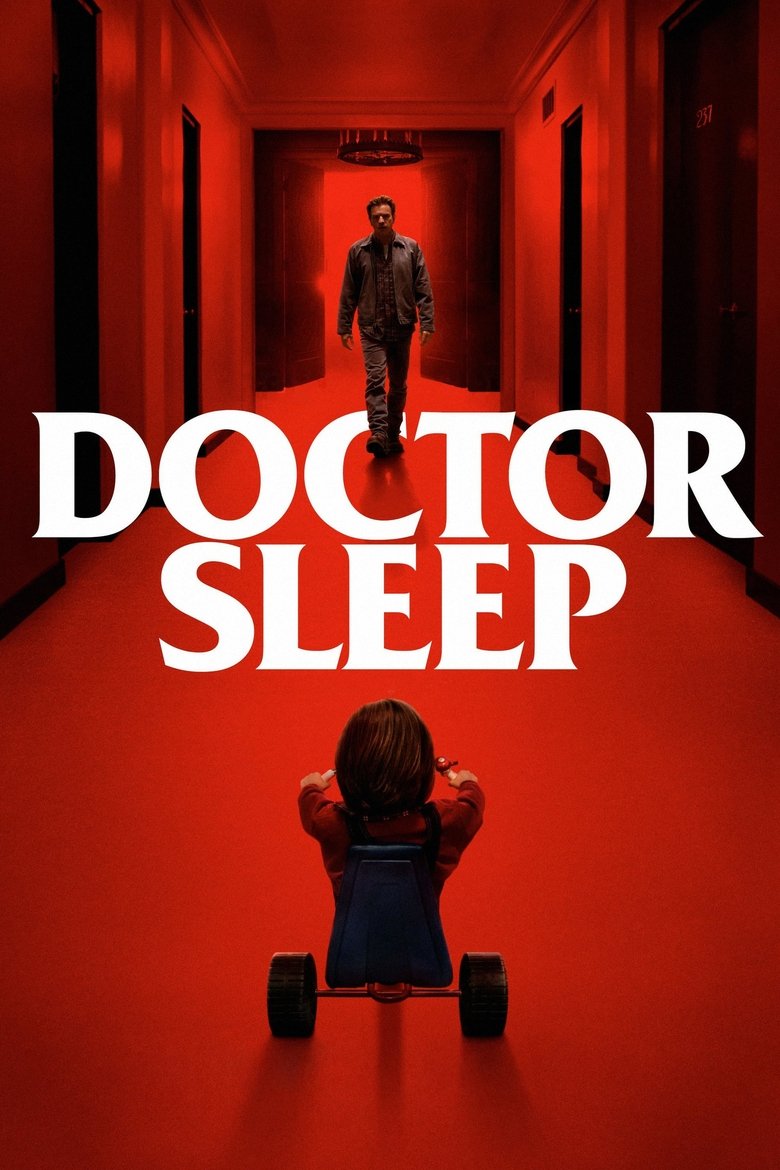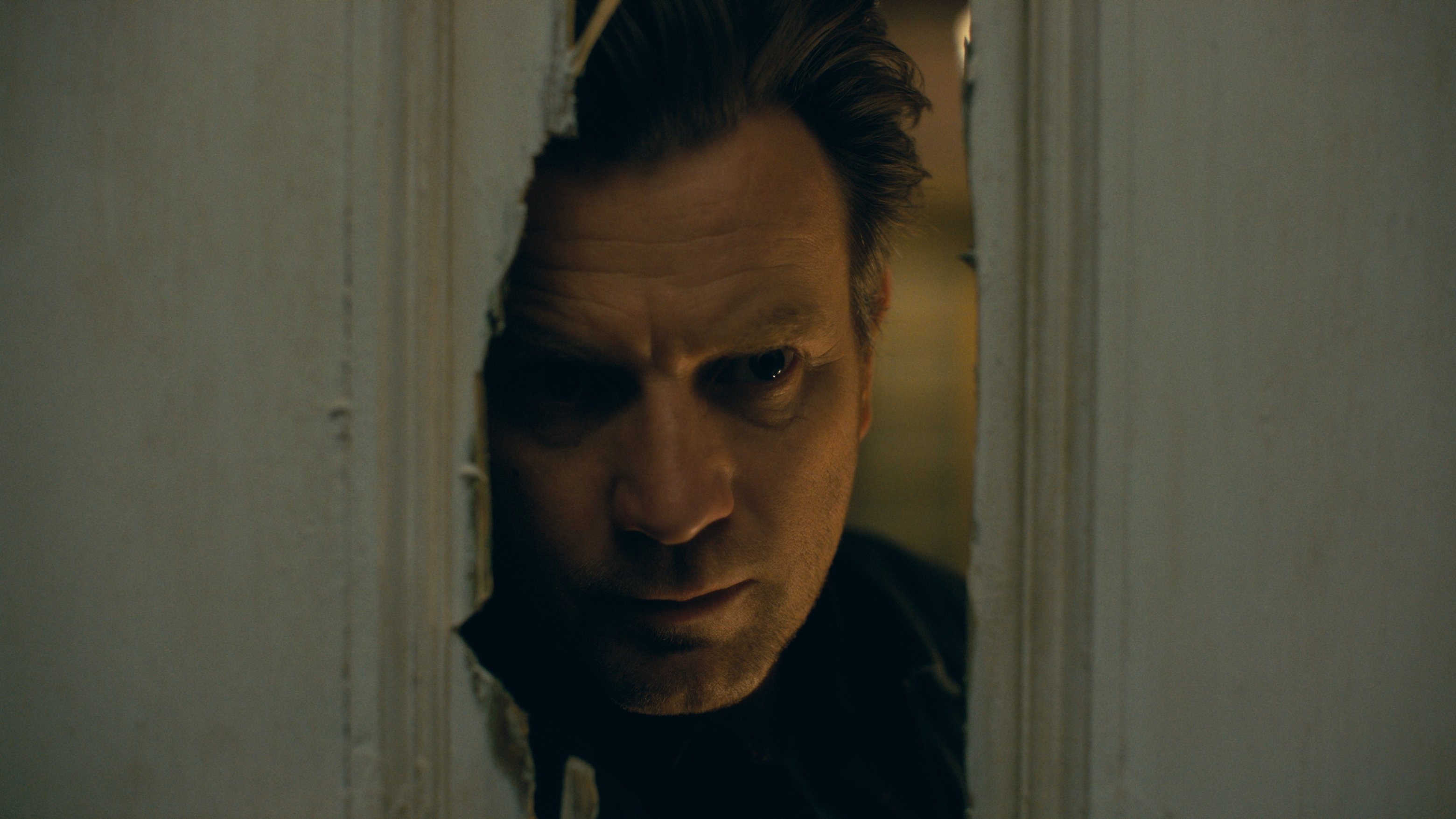If you enjoy reading my Spoiler-Free reviews, please follow my blog :)
There's this misconceived idea that "scary movies" are the ones with demons, monsters, or ghosts literally showing up in jump scare sequences, one after another, accompanied by an extremely loud sound. Granted, we're scared of what we're scared of. No debate here. However, one common complaint about this type of horror films is that they aren't "scary enough". I couldn't disagree more. These movies are the ones that truly get to us and stay with us for a while. If we watch a film with cyclical jump scares, we're going to forget about it as soon as we leave the theater. Movies with a horrific story, based on relatable themes, those are the ones that leave us uncomfortable and disturbed. I'm just writing this "prologue" to say that you shouldn't go in expecting a "scary" film. At least, not in a mainstream way. Moving on...
As you probably know by now (if you don't, check out my The Shining's review), I'm a huge fan of Stanley Kubrick's adaptation of Stephen King's novel of the same name. It's a cult classic horror movie, one that influenced generations to come, especially regarding filmmaking techniques and equipment. With that said, Mike Flanagan had one of the toughest jobs of 2019. Not only did he need to deliver a sequel worthy of being associated with a beloved classic, but he had to deal with all the differences between the source material and Kubrick's changes. I'm going to leave a SPOILER WARNING for The Shining since the film came out 40 years ago, and I already wrote a review about it. Still, SPOILER-FREE for Doctor Sleep, don't worry.
In case you don't know, the major difference between King's book and Kubrick's cinematic adaptation is the ending. In the book, Jack Torrance forgets to relieve the hotel boiler's pressure, and it explodes, destroying the hotel and killing Jack in the process. In Kubrick's movie, Jack freezes to death in the maze outside the hotel while chasing his son, while the hotel stands tall. Flanagan is able to do the impossible: he perfectly continues the story left by Kubrick while respecting King's "demands". Just don't go with a "purist" mentality, thinking that Flanagan doesn't have the right to explore and expand "the shining". It's a sequel, so expect things to be added to the story (nothing is removed or retconned, so relax). As long as it makes sense, be always open to new ideas.
As the director, Flanagan proves once again he's a pretty talented guy by seamlessly recreating some of The Shining's most iconic scenes, but also by delivering some tricks of his own. With the help of his amazing cinematographer, Michael Fimognari, they are able to generate incredible levels of tension, characteristic of the original film. As the editor, he puts together everything remarkably well. The sequences inside someone's mind are wonderfully handled and provide some of the best moments of the entire movie. However, there's a massive difference when it comes to how the runtime flows in each film.
Both cross the 140-minute mark, and both purposefully employ slow pacing. Nevertheless, The Shining feels like it goes by way faster than Doctor Sleep (and mathematically it does have less 5-10 minutes, but that's not the point). Why? Due to Kubrick's movie constantly having long takes and extense dialogues, while Flanagan's installment has a modern approach with regular cuts plus much more action. Audiences presumably won't think of this (it's not like the "average Joe" notices or even cares if a scene has been going for 5 minutes straight or pieced together with 50 cuts), and just assume that the latter is more boring than the first without really understanding why.
People will probably blindly blame the story, but Doctor Sleep has a lot more "blockbuster entertainment" than The Shining. The latter is pretty much two hours spent inside a hotel where dialogue is the primary source of entertainment (things only go crazy in the last 15-20 minutes), and we all know that the general public usually doesn't fall for that. The sequel has a lot more action, subplots, and characters, so the runtime should go by faster than the original, right? No. This film is the number one proof that I'm going to use from now on to defend that uncut dialogue sequences and overall long takes are the best way of managing an extended runtime without it feeling too "heavy", especially in a psychological horror flick.
I wrote all these last paragraphs not to complain about the movie's being too slow, too long, or too dull. I'm just trying to help everyone understand why the film might feel slower and (much) longer, while protecting its story because the screenplay is indeed extremely well-written. Like in the original, exposition is handled beautifully with scarce lazy displays, but it's the characters of Ewan McGregor and the debutant Kyliegh Curran that carry the narrative effortlessly. McGregor is the perfect casting as Danny Torrance, and he does a great job of embodying Dan's personality. However, it's Danny's journey through his young and adult years that impresses me.
Exceptional character development! Danny's life after the events at the Overlook Hotel is as realistic and logical as it could be. Flanagan does a phenomenal job in handling this character and throwing just the right obstacles in his path. The way he deals with the aftermath of The Shining, how he grows up as a man, and even what he ends up doing for a living, everything is absolutely perfect. Furthermore, he's not alone. Abra is a badass young girl who wants to use her "shine" to protect others, but this time it's the actress that steals the spotlight from the character. Kyliegh Curran delivers one of the best young acting debuts I've ever witnessed. She's wonderful as Abra, and her range of emotions is already surprisingly vast.
She has some of the best scenes of the movie, especially when she's "fighting" Rose the Hat, but here is where we get to my major issue with the film. Rebecca Ferguson gives an outstanding performance, no doubt about it. She elevates infinite sequences, giving 200% to her role. However, her character and The True Knot group are the only significant flaw of this sequel. When writing a villain, there are basically two paths for success: either make the "bad guy" a compelling character with whom the audience can create some sort of empathy with and understand where he/she comes from, or turn him/her into a menacing, powerful, scary force that makes us fear for our heroes.
Flanagan apparently chooses the latter route, and unfortunately, it's his only misstep. I don't know if King didn't allow for changes to Rose or The True Knot cult, but they don't quite work when adapting to the big screen. Not only their history is never truly explored, but their motivations are too shallow, so I didn't care for a single character from the group, not even Rose. If she was the "menacing, powerful, scary force" that I wrote above, this wouldn't be so important, but the truth is she isn't. As the narrative progresses, there's a constant reminder that our heroes are in danger and that Rose is astonishingly strong, but the interactions between her and Abra prove the contrary. So, I never really felt frightened or overwhelmed by her.
A decent portion of runtime is handed to Rose's group, but its development didn't work for me at all. They're not bad villains, and they're still more fleshed out that a lot of characters in horror movies. I just think something's missing. Nevertheless, that's the only major problem I have with the movie. For true fans of The Shining, the countless references and Easter Eggs are such a delight (there's good and bad fan-service, the one present in this sequel only appears after we are already invested in the story and its characters, demonstrating once more Flanagan's talent). From the haunting and addictive score that The Newton Brothers are able to seamlessly adapt to the sequel to the influential Kubrick's framing, Flanagan and his team produce something pretty extraordinary having in mind this is a sequel to one of the most beloved horror films of all-time.
In the end, Doctor Sleep might be the first sequel/remake/reboot/whatever to a cult classic movie that doesn't diminish the original, disgracefully copies it or takes something away from it, while actually being an individually great film with a captivating narrative and compelling leads, plus the right amount of homages to the classic. Mike Flanagan took the impossible task of balancing both Stephen King's The Shining and Stanley Kubrick's cinematic adaptation, and successfully nailed pretty much everything regarding the connection between the main stories. In addition to the slow pacing not working as well as in the original, The True Knot group is the big stumble in an otherwise pretty consistent screenplay. However, the phenomenal cast (with a terrific debut performance from Kyliegh Curran) elevate every scene, ultimately driving the sequel to a nostalgia-full ending that will turn out to be divisive among fans. I stand on the good side. Therefore, I genuinely appreciate this movie. If you're a fan of the original, you can't miss this one!
Rating: A-







